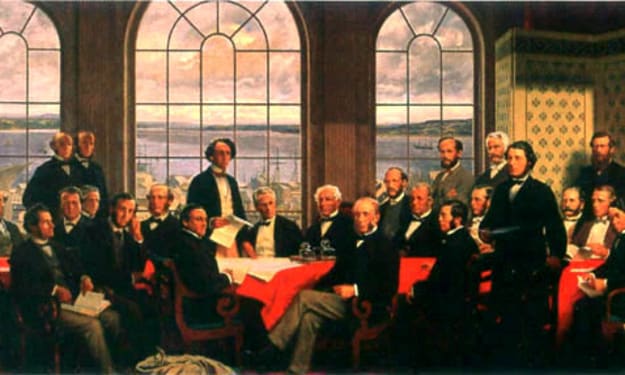The Literary Masterpiece Hidden for 62 Years
The true story behind a revered novel

The Incredible Story Behind a Novel
I had not even heard of Irène Némirovsky until I read her story in Once Again to Zelda by Marlene Wagman-Geller. That book is a collection of fifty short essays giving the background stories on the dedications to fifty novels ranging from Mary Shelley's Frankenstein in 1818 to Michael Chabon's The Yiddish Policeman's Union in 2007.
The dedication in Suite Française reads "I dedicate this novel to the memory of my mother and my father, to my sister Elisabeth Gille, to my children and grandchildren, and to everyone who has felt and continues to feel the tragedy of intolerance." - Denise Epstein.
The story Wagman-Geller tells rivals the best fiction. Irène Némirovsky was born a Russian Jew in Kiev, the daughter of a wealthy banker. Her mother, a vain socialite, ignored her daughter and Irène was raised by a French governess. So the young girl became fluent in French as well as Russian. When the Bolsheviks seized power, the family, disguised as peasants, fled to France. Her father re-established a career as a banker and Irène attended the Sorbonne.
At age 18, she fell in love with Michel Epstein, a fellow Russian emigré who worked at her father's bank. Early in their marriage she wrote her first novel, David Golder, which was adapted into a film. Irène became the darling of the literary set. And soon she was the mother of two daughters, Denise and Elisabeth. And the author of four more novels.
When the Nazis invaded France, the Epsteins did not want to flee their home again as they had in Russia. So they converted to Catholicism in 1939, believing this would keep them safe. It did not. They sent the children to live in the Burgundy countryside with their nanny's family. When Michel was fired by the bank and Irène was barred from publishing books because of their Jewish heritage, they left Paris to join their children.
Irène continued writing during this time. But on July 13, 1942, the Germans came knocking at their door. Irène was "a Russian, a Jew and an intellectual, all three of which they both despised and feared...As she was being led away, she told her daughters, 'I am going on a journey now.' Her last act was to leave a locked suitcase with her elder daughter."
Her husband tried in vain to have her returned and he was also arrested a month later. Both were sent to Auschwitz. The children would have been doomed too, but their nanny spirited them away to a convent. They managed to dodge the authorities for the rest of the war, Denise lugging her Mom's suitcase with her with every move.
After the war the children learned that their mother had died of typhus and their father had been a victim of the gas chamber. The sisters remained close until Elisabeth passed away in 1996. Both had married and raised families.
In the 70s when their home was flooded, Denise moved the suitcase to safety. It had remained untouched all this time. She feared it would bring back painful memories. But now, more than 25 years after the war, she opened it. It contained family photos and a notebook. "The pages were onionskin thin, and the words, written in blue ink, were so small it was almost impossible to decipher." Emotionally overcome, Denise put the notebook back in the suitcase and locked it away again "where it remained unopened for another twenty years."
"In the late 1990s, Denise decided to donate her mother's papers to a French archive that was compiling artifacts from the Holocaust. Before she parted with them, she decided at long last to read her mother's last words."
It was then she realized this was not a diary, but a novel. "Over the course of the next decade, with the aid of a magnifying glass, Denise read and typed out her mother's final novel which Irène had named The Suite Française." In 2004 it was finally published and became a best seller. Sixty-two years after Irène was led away to the Nazi death camps, her words once again moved readers around the world.
My Review
I knew after I read that account, I had to read the novel. I knew it was about the war and based on her experiences so I thought it might be similar to Tatiana de Rosnay's novel Sarah's Key, which revolves around the persecution of Parisian Jews during the war. It is not. It is quite different. It is not about the Jewish experience at all, but about life for the average and not-so-average French citizen during the war.
The novel was planned to be in five parts. The first was called Storm in June. The second was called Dolce. The third, called Captivity, was roughly outlined. The fourth and fifth exist only as titles - Battles and Peace.
Because only two parts of the novel were written, Suite Française is an incomplete novel. Yet the two parts that were finished stand well alone. They are self-contained, though there are questions left hanging in a very broad sense. What the completed parts are is a fictional account of what it was like to be a refugee and to live under Nazi occupation. Almost a diary, told from various different perspectives. But there is an interconnected thread between the stories. And there is drama.
Némirovsky is an astute and brilliant observer of the human condition. She gets into the heads of her protagonists and reveals their thoughts, their prejudices, their hates, their fears and their loves. She does this in a language at once powerful, evocative and beautiful. She is a master stylist.
I don't know if the novel has the same resonance in the original French as in the translation by Sandra Smith. I suspect it does but a skilled translator can make a huge difference. The translation of Victor Hugo's Les Misérables by Norman Denny is very different than the public domain translation by Isabel Hapgood at Project Gutenberg. Hapgood's translation is very literal. Denny's is idiomatic and nuanced. And so is Smith's translation of the Suite. But in either translation, Hugo is distinctively Hugo and I suspect that the artistry in Suite is more from the writer than the translator.
In any event, the novel is written with great perceptiveness and is lyrical and poetic in style. Her command of words, the way she puts them together, is nothing short of brilliant. Her descriptive flourishes paint vivid pictures in the reader's mind.
Storm in Spring
Part One, Storm in Spring, is an account of the evacuation of Paris when the Nazis are about to cross the Seine. It starts with the people in Paris, hearing about the coming invasion, planning their escape, and continues with the actual trek to safety. The chapters alternate between various protagonists, each with a different story to tell. They include the Pericands, an upper middle-class Catholic family with four children at home and their wheel-chair ridden grandpapa, their grown-up son Philippe who is a priest in charge of an orphanage, the writer Gabriel Corte and his mistress, the Michauds who are a middle-aged couple who work for a bank and whose son Jean-Marie is a soldier in the French army, the bank director Corbin and his mistress and Charles Langelet, an unscrupulous dilettante. All are caught up in the chaotic flight from Paris. Each copes in their own way, some honorably, some not so honorably.
The horror of the situation is vividly captured as refugees travel down narrow roads, bumper to bumper and cheek by jowl. Maurice Michaud is reflective. Jeanne Michaud seems to see her son in every face they pass. They encounter an air raid, witness death in the street. They make their way to a small town. Although planes had been flying over for several days and air raid sirens had been screaming, they ignored the planes. They got used to them. Then "suddenly one broke loose and swooped down on the crowd. He's going to crash, Jeanne thought, then no, he's going to fire, he's firing, we're finished...instinctively she covered her mouth to stifle a scream. The bombs had fallen on the train station and, a bit further, along, on the railway tracks. The glass roof shattered and exploded outwards, wounding and killing the people in the square. Panic-stricken, some of the women threw down their babies as if they were cumbersome packages and ran. Others grabbed their children and held them so tightly they seemed to want to force them back into the womb, as if that were the only truly safe place. A wounded woman was writhing at Jeanne's feet. Blood was pouring from her shattered skull. Her warm blood oozed on to Jeanne's dress, on to her shoes and stockings.
"But Jeanne was saved from thinking about the dead by the wounded, who were calling for help from beneath the piles of shattered stone and broken glass."
One chapter is reminiscent of the expression "the calm before the storm". It describes a cat in the most evocative way. One of the best descriptions of a cat I've ever read. If you're a cat lover or have lived with cats, the images ring true. "His body was hidden by the pink flannel dressing gown. Little by little, extremely quietly, one leg emerged, then the other; he stretched them out and felt them tremble slightly, all the way from his shoulder joint – that steel spring hidden beneath a soft, warm fur coat – right down to his hard, transparent claws."
The cat, a young cat, makes his way to the open window. He inhales the scents around him. "He eyed the distance from the drainpipe to the ground. It was an easy jump, but he appeared to want to flatter himself by exaggerating the difficulty of the leap. He balanced his hindquarters, looking fierce and confident, swept his long black tail across the drainpipe and, ears pulled back, leapt forward, landing on the freshly tilled earth. He needed to sniff the earth: here, between the roots and the pebbles, were smells untainted by the scent of humans, smells that yet had to waft into the air and vanish. They were warm, secretive, eloquent. Alive. Each and every scent meant that there was some small living creature, hiding, happy, edible...."
The cat listens to the sounds of the night, birds, insects, scurrying mice. "There were other sounds as well: the steady thud of explosions, rising and bursting forth like flowers and, when the noise stopped, the rattling of every window-pane in the village, the banging of shutters being opened and closed, anxious words flying from window to window. At first, the cat had started every time he heard an explosion, his tail stiff, his fur bristling, his whiskers tense with fear. But he had got used to the way the rumble got closer and closer, no doubt imagining it was thunder."
The cat continues his hunt. Prowling, clawing, darting up a tree terrifying the birds. "The birds in the henhouse and the dovecote all woke up and hid their heads beneath their wings, catching the scent of fate and death."
The cat nets his prey. "He came back carrying a small dead bird in its mouth, his tongue slowly lapping at its wound. Eyes closed, he savoured the warm blood. He had plunged his claws into the bird's heart and clenched and unclenched his talons, digging deeper and deeper into the tender flesh that covered its delicate bones with slow and rhythmical movements until its heart stopped beating."
Sated, the cat experiences a different kind of hunger - he finds "an old red pussycat." Then, "tired, triumphant and covered in dew, the cat gnawed on a sprig of grass, then slipped back into Jacqueline's room, onto her bed, looking for that warm spot near her thin feet. He was purring like a kettle on the boil.
"A few seconds later, the arsenal exploded."
Damn! That's some of the finest writing I've ever read. The symbolism is stunningly brilliant. I wish I could write like that!
The novel continues to chronicle the travels of the disparate refugees.
Némirovsky's Notes
The book contains an appendix of Némirovsky's notes. In them she writes what thematic elements she is trying create. She wanted to avoid the obvious. She was angling for subtlety and indeed, wanted to characterize how different people faced their troubles. People adapt pretty quickly to new circumstances and she wanted to "capture the killings and shootings of hostages much less than the profound indifference of the people".
"If I want to create something striking," she wrote, "it is not misery I will show but the prosperity that contrasts with it."
At the time of writing, the Vichy government of Marshall Pétain had brokered a peace deal with the Nazis. Némirovsky wanted to explore the psychology of the collaborationists, which included many in the upper and middle classes. "For years," she writes in her notes, "everything done in France within a certain social class has had only one motive: fear. This social class caused the war, the defeat and the current peace. The Frenchmen of this caste hate no one; they feel neither jealousy nor disappointed ambition, nor any real desire for revenge. They're scared. Who will harm them the least? ...The Germans won but the beating has been forgotten and the Germans can protect them. That's why they're 'for the Germans'."
She notes that there is a gap between this caste, who now lead the nation, and the rest of the French. The rest, "because they own less, are less afraid." She laments the resignation to accommodation that is everywhere evident. "All in all, it's only the initial shock that counts. People get used to everything, everything that happens in the occupied zone: massacres, persecution, organized pillaging, are like arrows shot into the mire!...the mire of our hearts."
She later writes that "the book must result in a struggle between individual destiny and collective destiny." But, she adds, "Must not take sides." She wants to present conflicting ideas and let the reader decide where she stands.
Dolce
The second part, Dolce, which means sweet in Italian, is about the occupation. The Germans have conquered. They are now occupying the small town of Bussy. Homes are required to board German soldiers. The story is a study in contrasts and changing emotions. Lucile Angellier lives with her mother-in-law in a fine large house. The family owns farmland. Lucile's husband is a prisoner-of-war held somewhere by the Germans. But theirs is a loveless marriage. He has a mistress in another village, which she knows about.
The German officer boarding with them, Bruno Von Falk, is a young, handsome and dashing soldier. Slowly they fall in love. A timid love, neither wanting to go too far. Lucile, of course is afraid of what neighbors would think and has some hesitancy about fraternizing with the enemy.
But the relations are cordial. In fact, the Germans are unfailingly courteous, and they spend lots of money in the shops, often at inflated prices. The local merchants like to soak the Germans if they can. The women, in particular, find the German soldiers dashing and handsome and have no qualms talking and even flirting with them. The men remaining in the village are not so blasé.
Némirovsky paints an almost sympathetic picture of the young Nazis. These young German soldiers, conscripts all, are as stuck in a bad situation as the French. Many have family back home and miss them terribly. And they want to be on friendly terms with the locals.
One passage struck me in particular. Lucile is thinking about her relationship with Bruno and the feelings that are emerging. It epitomizes this conflict between individual and collective destiny.
The Germans had requisitioned most of the horses and were marching them through the village. There is grumbling and anger. Lucile covers her ears so she won't have to hear the men and the horses going by her window.
"She'd had enough of these war-like scenes, these depressing sights. She was deeply disturbed by them; they broke her heart; they prevented her from being happy. Happy, my God! So there's a war, she said to herself, so there are prisoners, widows, misery, hunger, the occupation. So what? I'm not doing anything wrong. He's a most respectful friend. The books, the music, the long conversations, our walks in the Maie woods...What makes them shameful is the idea of war, this universal evil. But he's no more at fault than I am. It's not our fault. Just leave us in peace....leave us alone! Sometimes she even frightened and surprised herself at feeling such rebellion in her heart – against her husband, her mother-in-law, public opinion, this 'spirit of the hive' Bruno talked about. That evil, grumbling swarm serving some unknown end. She hated it.
"Let them go where they want; as for me, I'll do as I please. I want to be free. I'm not asking for superficial freedom, the freedom to travel, to leave this house (even though that would be unimaginably blissful.) I'd rather feel free inside - to choose my own path, never to waver, not to follow the swarm. I hate this community spirit they go on and on about. The Germans, the French, the Gaullists, they all agree on one thing: you have to love, think, live with other people, as part of a state, a country, a political party. Oh, my God! I don't want to! I'm just a poor useless woman; I don't know anything but I want to be free! Slaves, she continued thinking. We're becoming slaves; the war scatters us in all directions , takes away everything we own, snatches the bread from out of our mouths; let me at least retain the right to decide my own destiny, to laugh at it, defy it, escape it if I can. Better to be a slave than to be a dog who thinks he's free as he trots along behind his master. She listened to the sound of men and horses passing by. They don't even realize they're slaves, she said to herself, and I, I would be just like them if a sense of pity, solidarity, the 'spirit of the hive' forced me to refuse to be happy."
She goes on to reflect on her relationship with Bruno, their "dark secret, my God, how sweet it is." Then she starts having second thoughts. "Wait, think...be logical...listen to the voice of reason...you're a sensible woman...you're French....where will all this lead?"
She is clearly conflicted, but the attraction to Bruno is real and powerful.
A parallel story has a man, a neighbour, eventually kill the Nazi who has been hitting on his wife. He is on the run and Lucile and her mother-in-law shelter him. The conflict intensifies with both a fugitive Frenchman and a Nazi living under the same roof. After three months in Bussy, the German soldiers leave. They are being sent to the Russian front.
How it resolves I won't say. But the notes on the third and unwritten book reveal that the fugitive, Benoit, is spirited to Paris where he gets involved in the resistance. He is part of an assassination attempt. Her last note on the unwritten chapter: "12. Benoit's death. Brutal and full of hope."
Other notes suggest that "Jean-Marie dies heroically. But how? And what is heroism these days? Parallel to this death, must show the death of the German in Russia, the two full of sorrowful nobility."
There is something Hugoesque in Némirovsky's novel with her focus on personal struggles, unrequited love and noble deaths. A certain grandeur and epic scale. The novel was to have run around 1000 pages when finished.
And indeed, she was aware of this. She wrote this note to herself: "Never forget that the war will be over and that the entire historical side will fade away. Try to create as much as possible things, debates...that will interest people in 1952 or 2052." I think she succeeded in spades. One can only imagine what a grand novel it would have been had she lived to complete it.
Note: If you liked this story, why not click the heart symbol below. I earn six tenth of a penny for every page view I receive but if you'd like to leave an additional tip, that would be greatly appreciated. If you'd like to read more of my book reviews, or read some of my other pieces on everything from philosophy to economics to music, or maybe read some of my short stories and poems, check out the link below which lists all my scribblings here at Vocal.
About the Creator
Marco den Ouden
Marco is the published author of two books on investing in the stock market. Since retiring in 2014 after forty years in broadcast journalism, Marco has become an avid blogger on philosophy, travel, and music He also writes short stories.






Comments
There are no comments for this story
Be the first to respond and start the conversation.